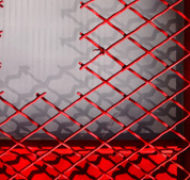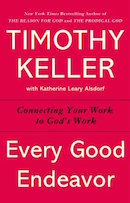Religion + Life with Elaine H. Ecklund, Part 4: Worshiping Science
Blog / Produced by The High Calling
“Philosophers of science and scientists themselves have discussed what they call ‘scientism’, a disciplinary imperialism on the part of scientists that leads them to explicitly or implicitly assert that science is the only valid way to knowledge and that it can be used to interpret all other forms of knowledge.” —Elaine Howard Ecklund
There are generally two sides to every lovers’ quarrel and this is true in the argument between theology, once known as the “Queen of the Sciences,” and modern science, now the undisputed king. In two previous articles about Laity Leadership Institute Senior Fellow Elaine Howard Ecklund’s book Science vs. Religion: What Scientists Really Think, we looked at what people of faith sometimes contribute to the impasse. In this article, we’ll briefly consider what role scientists play. The scientists themselves provide clues.
Whether they were Catholic, Evangelical, Jewish, Muslim, or Hindu, believing scientists told Ecklund that they disapproved of an “extreme form of scientism that sees science as the only way of gaining access to truth or reality in the world.”
Science, for example, doesn’t provide a rational reason to care for students, they told her, and it doesn’t provide a framework for knowing what to do with their science or how to evaluate its ethics and impact on the world.
“In part, that’s why some atheists are drawn to a sense of spirituality, which they see as separate from religion, because they want a cohesive moral framework,” Ecklund said.
In 2005 and again in 2008, I did 10-day stints as writer-in-residence at a National Institutes of Health human embryonic stem cell training course for post-doctoral scientists in Orange, California. Both times I was surprised at how clumsy many of the budding hESC researchers' attempts were at discussing the ethics of a field they aspired to master. Ecklund was not surprised to hear this, as she has discovered in her own research that the scientific community “does not have a lot of open discussion about ethical issues related to science.”
“It’s not that discussions are willfully put aside,” she said, “but more that scientists don’t have spaces to talk openly about these things.”
She found that among both religious and non-religious scientists, they saw themselves as not having really thought about these issues very much. On the other hand, their perception that there is an anti-science bias on the part of people of faith makes it easier for them to dismiss moral concerns based on Christian convictions as "fundamentalist."
“This is erroneous on the part of the scientific community,” said Ecklund. “But, for good or bad, that’s what happens. So, if you bring up ethical concerns, your objectivity is called into question. It’s sad that there’s not this kind of open debate, especially among our world’s smartest scientists.”
Things weren’t always this way. In 2006, when I was working on a profile of University of Southern California philosopher Dallas Willard for Christianity Today, Willard told me that up until the twentieth century, ethical theory was considered a form of knowledge.
“It was spoken of as a science. Now people think you’re crazy if you speak that way,” said Willard. “Many in the academic context believe ethics and morals are not even the kind of thing that can be true or false, certainly not the kind of thing that can constitute knowledge.”
The postmodern reaction to scientism doesn’t go far enough, he asserted, because it doesn’t say, “There is moral knowledge.” Rather, it says, “What we call the sciences have no right to declare the things that would make up a way of life including morality.” In other words, it only asks what works now in a particular context; it doesn’t ask what works forever in every context.
Willard and I had this discussion as he was planning a book that sought to resurrect the idea of moral knowledge. Likewise, in Science vs. Religion, Ecklund said some scientists who care about advancing “the public transmission of science” view rejecting scientism and developing a “more publicly acceptable philosophy” as vital to that goal.
“Religion is of significant consideration in this view, because true scientism potentially disregards religion altogether. But scientists often feel that their colleagues should see religious ways of knowing as separate and even valuable distinctions from scientific ways,” Ecklund wrote.
Perhaps a day is coming when science and theology will reign together once again. What do you think? Is it possible, or even desirable?
***
Religion + Life with Elaine H. Ecklund, Part 1
Religion + Life with Elaine H. Ecklund, Part 2: Boundary Pioneers
Religion + Life with Elaine H. Ecklund, Part 3: Myth Busting
Religion + Life with Elaine H. Ecklund, Part 4: Worshiping Science
Religion + Life with Elaine H. Ecklund, Part 5: International Attitudes
Religion + Life with Elaine H. Ecklund, Part 6: Putting It All Together
Elaine Howard Ecklund is associate professor of sociology and director of graduate studies at Rice University in Houston, Texas. She studies cultural change in the areas of religion, immigration, and science. She is also a scholar at the Baker Institute for Public Policy and director of the Religion and Public Life Program at the Social Sciences Research Institute. Ecklund is author of two books:Science vs. Religion: What Scientists Really Think and Korean American Evangelicals: New Models for Civic Life.
Image by Darwin Bell. Used with permission. Sourced via Flickr. Post by Christine A. Scheller.





